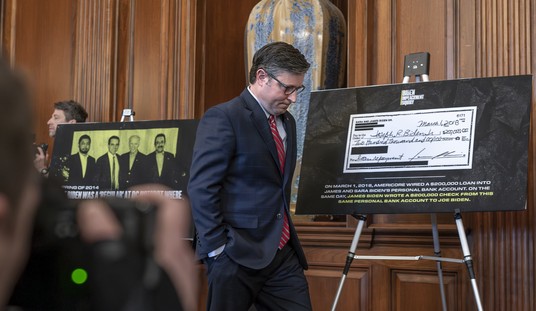For a number of reasons, I tend to avoid claims of media bias, as I am often reminded of Silberman’s Law, from Rumsfeld’s Rules, that notes that we often overstate “conspiracy,” while “underestimat[ing] incompetency and fortuity.” However, I have trouble explaining this one any other way. The New York Times editorial page editor, Andy Rosenthal, says, “A half-dozen times or so I’ve asked followers of my Twitter feed for examples of voter fraud – particularly of a scale that would justify erecting barriers against whole groups of voters. Haven’t gotten any.” Now, this was the first that I had heard of it because, well, I don’t follow Mr. Rosenthal. However, I am not convinced that I will start following him, as he seems unequipped with the basic tools of research.
Now, like Mr. Rosenthal, I do get frustrated with discussions of election fraud that don’t detail specific convictions. And while I believe that ACORN-style registration fraud is a real problem, I try to avoid discussing it. After all, we should lead with our strongest argument.
So let’s review some recent convictions, just to remind ourselves that election fraud happens, it is well documented, and it sways elections:
- My favorite example is the 2003 East Chicago (Indiana) Democratic mayoral primary. There were 32 convictions. The election results were also thrown out by the Indiana Supreme Court. Note that that last link is to a story in the Chicago Tribune, my home-town paper, that discusses the conviction of the “reform” candidate in that election, with the splendid sentence, “On Thursday, a federal judge sentenced former Mayor George Pabey to five years in prison, the third consecutive East Chicago mayor to come to grief in a federal courtroom.” This case galvanized support for a voter ID law in Indiana that was eventually argued in the US Supreme Court, where the opinion upholding the law was written by former Justice Stevens. Some noted at the time that Justice Stevens, who was normally a reliable liberal vote, grew up in Chicago.
- Then there’s another favorite case, that of Ophelia Ford. Mrs. Ford is the sister of former Democratic Congressman Harold Ford, Sr., sister of former State Rep. John Form, now serving time in federal prison for bribery, and the aunt of former Democratic Congressman Harold Ford, Jr., now a New York resident, and, undoubtedly, a subscriber to the New York Times. In this case, Mrs. Ford, a Democrat, defeated an incumbent Republican by 13 votes. The local newspaper, the Commercial Appeal, smelled something and dug. In the end, the State Senate vacated the election on a vote of 26-6, and three people plead guilty to felonies. In that case, the judge noted that the guilty plea actually prevented a full record of the fraud from being documented. But the guilty pleas did involve both dead and moved people voting.
- Closer in both time and space to the New York Times, there is the ongoing investigation of the Troy City Council race from 2009, which I have written about in the past. The city clerk has plead guilty.
- I also noted a series of convictions in Alabama that may have triggered the recent op-ed by former Alabama Representative Artur Davis backing voter ID laws.













Join the conversation as a VIP Member